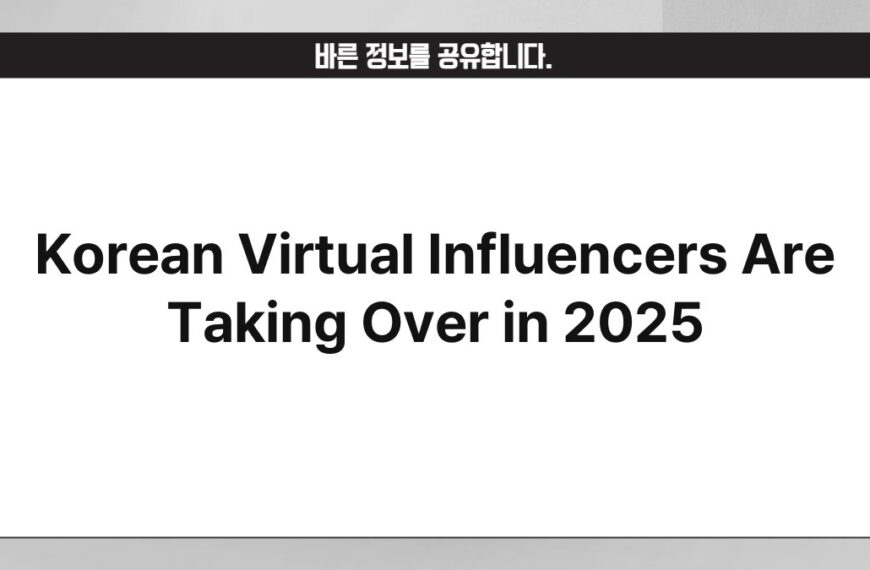[K-Bridge/Samuel] Digital Therapeutics in Korea: How Medical Apps Are Transforming Patient Care represents a significant shift in healthcare delivery, leveraging technology to enhance patient outcomes.
These digital solutions are designed to prevent, manage, or treat medical conditions through software applications.
In Korea, the integration of medical apps into patient care is redefining traditional approaches, offering personalized treatment plans and real-time monitoring.
This article will explore the landscape of digital therapeutics in Korea, the benefits of medical apps, their challenges, regulatory frameworks, and their future potential.
By reading this, you will gain insights into how these innovations are transforming patient care and the implications for healthcare providers and patients alike.
The Rise of Digital Therapeutics in Korea
Understanding Digital Therapeutics
Digital therapeutics refers to evidence-based therapeutic interventions delivered via software to prevent, manage, or treat medical conditions.
In Korea, the rise of digital therapeutics is closely linked to advancements in mobile technology and healthcare.
This sector is rapidly evolving, with a growing number of startups and established companies developing innovative solutions.
The focus is not just on symptom management but also on enhancing overall patient engagement and adherence to treatment protocols.
The Korean government has recognized the importance of digital therapeutics, providing support for research and development.
This support has led to a surge in digital health startups, fostering an environment of innovation.
Korean patients are increasingly adopting these technologies, driven by a desire for more personalized and efficient healthcare solutions.
The integration of digital therapeutics into the healthcare system signifies a shift towards a more patient-centered approach, where technology plays a crucial role in enhancing treatment outcomes.
Key Players in the Market
Several key players are shaping the digital therapeutics landscape in Korea.
Startups and tech companies are collaborating with healthcare providers to develop apps that address various medical conditions, from mental health to chronic diseases.
These companies leverage data analytics and artificial intelligence to tailor interventions to individual patient needs.
The collaboration between tech firms and healthcare professionals is essential for ensuring that digital therapeutics are effective and safe.
Moreover, established pharmaceutical companies are also entering the digital therapeutics space, recognizing the potential for synergy between traditional medication and digital solutions.
This collaboration enhances the credibility of digital therapeutics, as these companies bring experience and resources to the development process.
The convergence of technology and healthcare is creating a dynamic ecosystem where innovation flourishes, ultimately benefiting patients.
Market Trends and Innovations
The digital therapeutics market in Korea is characterized by several trends and innovations.
One notable trend is the increasing focus on mental health solutions, particularly in the wake of the COVID-19 pandemic.
Apps designed for mental health support, such as anxiety and depression management, are gaining traction.
These apps provide users with tools for self-assessment, cognitive behavioral therapy, and peer support, making mental health care more accessible.
Another trend is the integration of wearables and IoT devices with digital therapeutics.
These technologies enable continuous monitoring of patients’ health metrics, allowing for real-time interventions.
For instance, patients with diabetes can use apps that sync with glucose monitors to receive personalized feedback and recommendations.
This data-driven approach enhances patient engagement and empowers individuals to take charge of their health.
Benefits of Digital Therapeutics in Patient Care
Enhanced Patient Engagement
Digital therapeutics significantly enhance patient engagement by providing tools that encourage active participation in their health management.
Patients can access personalized treatment plans through mobile apps, which fosters a sense of ownership over their health.
The real-time feedback and reminders help patients adhere to medication schedules and lifestyle changes, leading to better health outcomes.
Moreover, these apps often include educational resources that empower patients with knowledge about their conditions.
By understanding their health better, patients are more likely to engage in discussions with their healthcare providers, leading to improved communication and collaboration.
This shift towards a more interactive patient-provider relationship is crucial for effective healthcare delivery.
Improved Access to Care
Digital therapeutics break down geographical barriers, providing access to care for patients in remote or underserved areas.
With just a smartphone, individuals can access medical advice, therapy sessions, and monitoring tools without the need for physical visits to healthcare facilities.
This is particularly beneficial for patients with chronic conditions who require ongoing support.
Additionally, digital therapeutics can alleviate the burden on healthcare systems by reducing unnecessary hospital visits.
Patients can manage their conditions effectively at home, leading to a decrease in healthcare costs and improved resource allocation.
The convenience and accessibility of digital solutions make healthcare more equitable, reaching populations that may have previously faced challenges in accessing care.
Data-Driven Insights for Healthcare Providers
Digital therapeutics generate valuable data that can inform clinical decision-making.
Healthcare providers can access real-time patient data, allowing for timely interventions and adjustments to treatment plans.
This data-driven approach enhances the quality of care, as providers can tailor interventions based on individual patient responses.
Furthermore, the aggregated data from digital therapeutics can contribute to research and development efforts, leading to improved treatment protocols and outcomes.
By analyzing trends and patterns, healthcare professionals can identify areas for improvement and develop evidence-based guidelines.
This continuous feedback loop between patients and providers is essential for advancing healthcare practices.
Challenges Facing Digital Therapeutics in Korea
Regulatory Hurdles
Despite the promising potential of digital therapeutics, regulatory challenges pose significant obstacles to their widespread adoption in Korea.
The current regulatory framework for medical devices and software is often slow to adapt to the rapidly evolving digital landscape.
This can delay the approval process for new digital therapeutic solutions, hindering innovation.
Moreover, there is a need for clear guidelines on the classification of digital therapeutics.
The lack of standardized definitions can lead to confusion among developers and healthcare providers regarding what constitutes a medical device versus a wellness app.
Establishing a robust regulatory framework that addresses these challenges is crucial for fostering confidence in digital therapeutics.
Data Privacy and Security Concerns
As digital therapeutics rely heavily on patient data, concerns regarding privacy and security are paramount.
Patients must trust that their sensitive health information is protected from breaches and misuse.
The increasing number of cyberattacks on healthcare systems highlights the need for robust security measures to safeguard patient data.
Furthermore, navigating the complexities of data sharing and consent is essential.
Patients should have control over their data and be informed about how it will be used.
Striking a balance between leveraging data for improved care and ensuring patient privacy is a critical challenge that stakeholders must address.
Integration with Traditional Healthcare Systems
Integrating digital therapeutics into existing healthcare systems can be challenging.
Healthcare providers may face difficulties in incorporating new technologies into their workflows, leading to resistance to adoption.
Additionally, there may be disparities in technological literacy among healthcare professionals, impacting their ability to utilize digital solutions effectively.
To overcome these challenges, ongoing training and support for healthcare providers are essential.
Building a culture of innovation within healthcare organizations can facilitate the integration of digital therapeutics.
Collaboration between technology developers and healthcare professionals is crucial for ensuring that digital solutions align with clinical practices and enhance patient care.
Regulatory Framework for Digital Therapeutics in Korea
Current Regulations and Guidelines
The regulatory landscape for digital therapeutics in Korea is evolving, with the government recognizing the need for clear guidelines.
The Ministry of Food and Drug Safety (MFDS) is responsible for overseeing the approval of medical devices and software.
Recent efforts have focused on streamlining the approval process for digital health solutions, aiming to foster innovation while ensuring patient safety.
The MFDS has introduced frameworks for classifying digital therapeutics based on risk levels, which helps developers understand the regulatory requirements for their products.
This classification system is essential for providing clarity and promoting the development of safe and effective digital therapeutics.
Future Directions for Regulation
Looking ahead, the regulatory framework for digital therapeutics in Korea is expected to become more adaptive and responsive to technological advancements.
The government is likely to engage with industry stakeholders to develop guidelines that reflect the unique nature of digital health solutions.
This collaborative approach can lead to more effective regulations that balance innovation with patient safety.
Additionally, there may be a push for international harmonization of regulations, as digital therapeutics are not confined to national borders.
Aligning with global standards can facilitate the entry of Korean digital therapeutics into international markets, promoting the country’s position as a leader in digital health innovation.
Role of Stakeholders in Regulation
Various stakeholders play a crucial role in shaping the regulatory landscape for digital therapeutics.
Healthcare providers, technology developers, and policymakers must collaborate to ensure that regulations are practical and promote innovation.
Engaging in dialogue and sharing insights can help identify potential barriers and solutions.
Moreover, patient advocacy groups can provide valuable perspectives on the importance of patient safety and data privacy.
Their involvement in the regulatory process can help ensure that the voices of patients are heard, leading to more patient-centered regulations.
Building a collaborative ecosystem among stakeholders is essential for the successful development and implementation of digital therapeutics.
The Future of Digital Therapeutics in Korea
Innovations on the Horizon
The future of digital therapeutics in Korea is bright, with numerous innovations on the horizon.
Advancements in artificial intelligence and machine learning are expected to enhance the capabilities of digital health solutions.
These technologies can enable more personalized interventions, predicting patient needs and adjusting treatment plans accordingly.
Moreover, the integration of virtual reality and augmented reality into digital therapeutics holds promise for improving patient engagement.
These immersive technologies can create interactive experiences that enhance learning and adherence to treatment protocols.
As technology continues to evolve, the possibilities for digital therapeutics will expand, offering new ways to support patient care.
Expanding Applications in Healthcare
Digital therapeutics are likely to expand beyond chronic disease management and mental health support.
Emerging applications may include preventive care, rehabilitation, and post-operative recovery.
By addressing a broader range of health issues, digital therapeutics can play a vital role in promoting overall health and well-being.
Additionally, the integration of digital therapeutics into traditional healthcare settings will become more prevalent.
Healthcare providers may increasingly incorporate these solutions into their practice, offering patients a comprehensive approach that combines in-person care with digital support.
This hybrid model can enhance patient outcomes and satisfaction.
Global Influence and Collaboration
Korea’s advancements in digital therapeutics may have a global influence, as the country shares its innovations with the international community.
Collaboration with global partners can facilitate knowledge exchange and promote best practices in digital health.
By positioning itself as a leader in this field, Korea can attract investment and talent, further driving innovation.
In conclusion, the transformation brought about by digital therapeutics in Korea is reshaping patient care.
The integration of medical apps into healthcare not only enhances patient engagement but also improves access to care and provides valuable data insights.
While challenges remain, the future of digital therapeutics holds immense potential for revolutionizing healthcare delivery, ultimately benefiting patients and providers alike.








